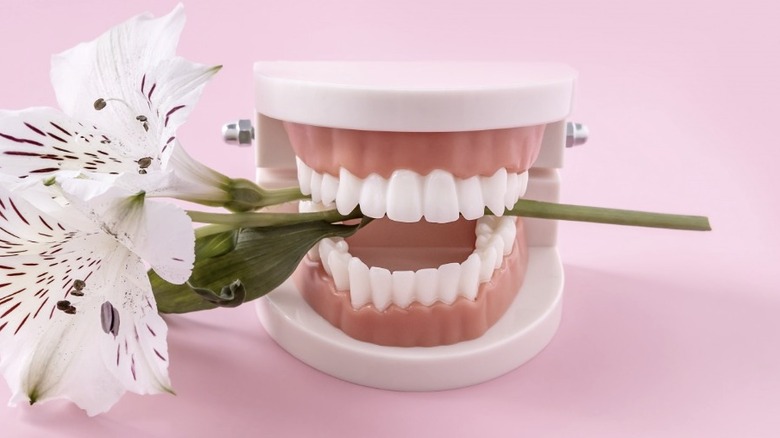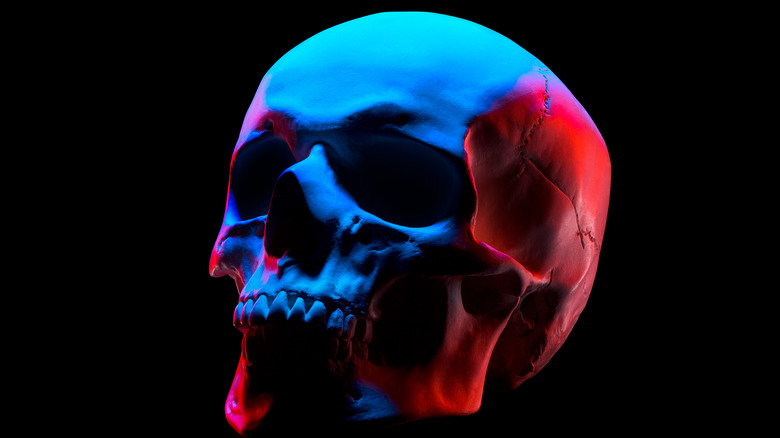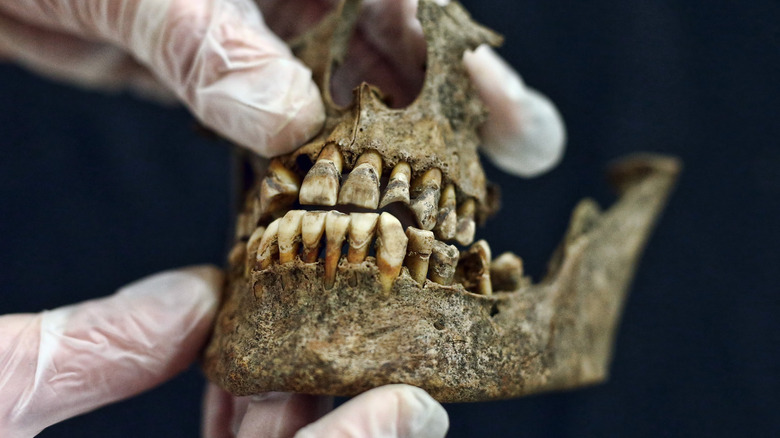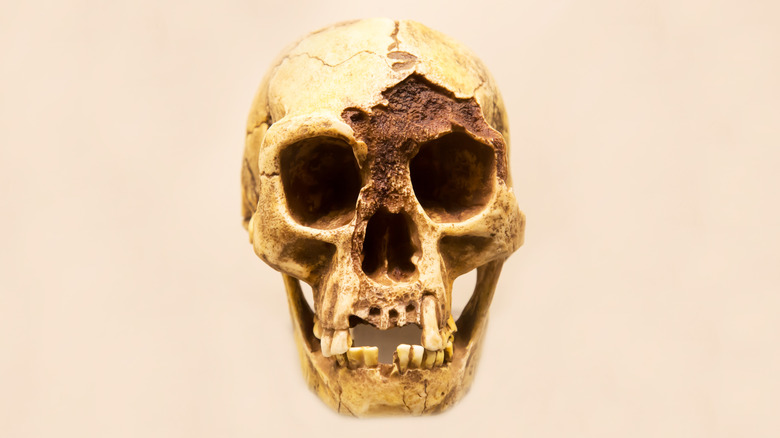What Happens To Your Teeth After You Die?
In life, our teeth are pretty demanding in the care and keeping they demand of us. This maintenance is daily, lifelong, and without respite: We are consigned to the tyranny of dentistry, the dominion of the toothbrush, and the torturous ritual of floss. Our teeth sometimes require orthodontic braces, fillings for cavities, veneers for their imperfections, and sealants to assure their strength and shine. If you neglect them, they'll decay. They will rot out of your mouth and you will be humiliated. Your teeth are merciless in what they ask of you. You already have so much going on.
The moment your fleshly vessel expires, with your last exhale your teeth become satiated at last. From the moment of your death until the end of eternity, your teeth now are the master of the corpse you've audaciously hijacked so long with your impertinent humanity.
According to Australian Broadcasting Corporation (ABC) News, while the rest of your body decomposes, your teeth remain hearty and whole. In fact, they grow stronger. A skeleton will survive hundreds of years (depending on the soil) — it eventually decomposes to a shriveled mass of disappearing bone, but as the rest of you turns dust to dust your teeth remain intact (via Aftermath). The Bible itself says all mortals live ashes to ashes, dust to dust. Who do your teeth think they are?
Your body starts decomposing the moment you die, and your decomposing teeth immediately stop
Is this a joke? Unfortunately not. Your skeleton may indeed crumble to ash, but your teeth are absolutely thriving on their own. Dr. Estelle Lazar, a forensic archaeologist from the University of Sydney, spoke to ABC News about your postmortem pearly whites. She assures us there is an explanation for the longevity of your teeth.
Teeth are not supernatural ivory squatters who've taken up residence in your mouth, simply biding their time till you expire so they may outlive you for sheer spite. Not at all, Dr. Lazar explains: For some evolutionary reason, teeth are simply not made of biodegradable bone. Like the rest of our skeletons, teeth are made of bone. Our teeth do not biodegrade, Lazar explains, and the bacteria that would eventually rot an unhygienic set of teeth does not survive without its human host.
The bacteria that cause tooth decay die when you die, but so does the stuff of your tooth enamel
According to Thinking Sustainably, the bacteria that eat away at your teeth while you live also die when you die. This means your teeth no longer require the checkups they once did (not that you would have been able to take them anyway). While your teeth are made of bone, your teeth are covered with enamel. Enamel is the durable, glossy coating that protects your teeth and helps you chew without your teeth shattering like chalk. According to D.W. Holcomb and R.A. Young in Calcified Tissue International (per Thinking Sustainably), the enamel on your teeth does decompose. Likewise, it's entirely possible that as your flesh self-eviscerates, these same self-righteous teeth will fall out of your mouth as the jawbone collapses.
Yet the teeth themselves? "Teeth decay easily in life, but once death occurs it stops ... [They] tend to survive well," Lazar told ABC News.
Your teeth could survive for thousands of years
Insider backs this up in their article profiling the theoretical corpse after a century in the coffin. According to their experts, after 100 years of decomposition the teeth may be all that remain of the physical form you once impressed upon the world. Dr. Lazar divulged to ABC News that the trajectory of teeth's endurance may be even closer to immortality. According to her, some teeth may survive for no less than tens of thousands of years.
For forensic archaeologists, this is extraordinary news. Students of prehistory (and history) may study surviving teeth, learn about the diets of our ancestors, and derive all other kind of knowledge from the condition their still-intact molars acquired during life. Teeth are used to identify a body for this same reason.
But it's also a little bit eerie. When all else is gone, teeth — unique, and near-immortal — are smiling at eternity. Is that creepy? Or is it cool?



